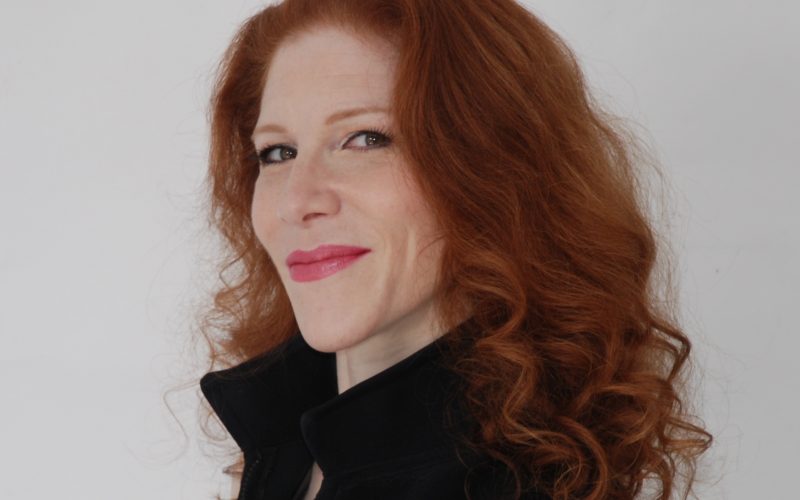Clone Shark
I’m a gay man. I was in a relationship with my ex for about three years. We’re on good terms and hang out as friends. He recently started dating a guy who looks like my long-lost twin (except he’s got about 40 pounds on me). Our mutual friends find this creepy and weird, and I have to say, I do, too.
—Disturbed
When two people break up, there’s often the inevitable, “It’s not you…” but you don’t expect, “It’s not you; it’s you…with more of a thing for beer, fried foods, and cake.”
This sort of thing can seem seriously creepy, until you drop in on a behavioral genetics researcher like Nancy Segal. Research by Segal and others on identical twins separated at birth (sometimes by a hospital mix-up) and raised apart suggests that many of our behaviors and preferences are genetically driven. For example, Segal told me “most behaviors have a 50% genetic effect.” There’s an interplay between genes and environment that can shake things up a bit, but if Mommy likes hot food and dark-haired men, there’s a good chance her daughter (who shares approximately 50% of her DNA) will also be thumbs up for Sergio and Sriracha.
The power of genes in driving behavior and preferences is reflected in Oskar and Jack, separated-at-birth identical twins Segal studied. When they met as adults, they discovered they both wrapped tape around pens and pencils to get a better grip, read books from back to front, and flushed toilets before using them as well as afterward. Sure, these could be wild coincidences, but they’re most likely expressions of personality traits, which are substantially driven by genetics. For example, Segal explains in “Indivisible by Two: Lives of Extraordinary Twins” that “both Jack and Oskar were sensitive to germs,” so their shared “penchant” for the double flush “is understandable.”
We might not see situations like yours often simply because there’s a gap between the features and traits we’re most attracted to and those available to us in people around us. Accordingly, it is possible that neither you nor the new guy entirely reflects your ex’s mate preferences, but your ex missed you and came as close as he could to replacing you when choosing his next boyfriend. Apparently, he picked him up not at the bar but at Costco, where the products we know and love come in more generous packages: “Dumpster-sized,” “Grand Canyon-sized,” and “black hole-sized extra value pack.”
Gloom With A View
I’m a 30-year-old woman in a new relationship with a really great guy. I haven’t been very lucky in romance, and in the past, every time I met someone I really liked, I ended up getting the rug pulled out from under me and getting dumped when I thought things were going great. This has left me with some raging insecurities. How can I calm down so I won’t get so freaked out that I sabotage the relationship?
—Panicky
It’s good to let your partner know you don’t take him for granted, though ideally not by waking up every morning all excited he’s (still) there: “Wow, can’t believe you didn’t sneak out, fake your death, and move to Belize!”
The Stoic philosopher Epictetus said something along the lines of, “It is not events that disturb us but the views we take of them.” In other words, it is not what happens to us that makes us feel bad but our interpretation of it. Chances are your interpretation is that it would be HORRIBLE if you were to get dumped again. Psychologist Albert Ellis calls this “catastrophizing”: engaging in irrational, overblown, drama llama thinking that only serves to make us more miserable. Rational thought, however, is the face-slap out of hysteria that we used to see in old movies. An example of the rational approach: There are “HORRIBLE” things in the world, like being eaten alive by a family of bears. But let’s be honest: Being dumped is merely a miserable experience you’d prefer to avoid. You will survive.
Research by psychologist Lauren C. Howe suggests a person’s interpretation of their breakup is key to their ability to recover from it. She finds that people who cast their breakup as a learning experience, viewing it as an opportunity for personal growth and better relationships in the future, are less chewed up by romantic rejection and less likely to suffer “lasting damage” in its wake. Sure, as Ellis says, we all “prefer” to avoid breakups and other painful experiences. Unfortunately, “experience is the best teacher” does not include the experience of being clonked over the head by a chunk of wisdom that falls out of a passing plane along with a child’s car seat and a gift-wrapped blender.
(c)2020, Amy Alkon, all rights reserved. Got a problem? Write Amy Alkon, 171 Pier Ave, #280, Santa Monica, CA 90405, or email AdviceAmy@aol.com. @amyalkon on Twitter. Weekly podcast: blogtalkradio.com/amyalkon
Order Amy Alkon’s new book, “Unf*ckology: A Field Guide to Living with Guts and Confidence,” (St. Martin’s Griffin, 2018).



